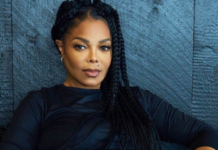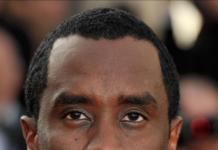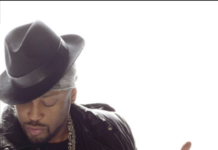The death of Ian Alexander, Jr., only child of award-winning actress and director Regina King, due to an apparent suicide has reignited necessary conversations regarding the state of mental health in Black America. More specifically, it dispelled myths that those with more resources and greater access to care are less likely to navigate significant mental health challenges.
“Mental health isn’t about class,” Dr. Monica A. Coleman, Professor of Africana Studies at the University of Delaware and author of Bipolar Faith: A Black Woman’s Journey with Depression and Faith, tells theGrio. “It’s about chemistry, trauma, genetics, experience and all these things put together. Mental health is an equalizer—and all of us can experience that.”
Rev. Dr. Willie Francois, Senior Pastor of Mt. Zion Baptist Church in Pleasantville, NJ and the Director of Masters Programs at Sing Sing Correctional Facility through New York Theological Seminary, says Black men are often victim to assumptions that their privilege and education insulates them, as well. “It has to be clear that success and wealth aren’t guardrails for depression or suicidal ideation,” Francois says. “Just because one has a level of means, notoriety or artistic outlets, they are not insulated from the impact of what it means to be human and emotionally unsettled in the world.”
Though it is understood Black men face structural and social restraints that impact their emotional wellbeing, Dr. Thema Bryant, President-Elect of the American Psychological Association and Professor of Psychology at Pepperdine University, noted that there are still few spaces that allow them to address this in healthy ways.
“I’ve had Black male clients who have had people be dismissive of their depression or when they say they’re struggling,” Bryant tells theGrio. “Too often, men are socialized to not ask for help or fully communicate the ways in which they’re struggling and the challenge sometimes becomes that, when they do, their medical doctors, family members and even other Black men have told them ‘you’re gonna be alright’ and not really hearing the pain they’re in.”
Francois believes that while Black men have traditionally leaned on the barbershop and male friendship circles, there must a concerted institutional effort to address their mental and emotional health—especially as it relates to the implications of dangerous religious narratives concerning mental health. “If the Black church continues to get this wrong, I don’t know who will get it right,” he says.
Coleman agrees. “There was an expectation when George Floyd and Breonna Taylor were murdered that pastors would say something that Sunday,” she says. “We needed pastors to do the same for Ian.”
If the church and other institutions are insufficient in addressing mental health, it stands to reason the resources for and responses to loved ones will lack, as well. The COVID-19 global pandemic has upended all systems, becoming especially taxing for those already navigating mental and emotional wellness. “Most people sustain their mental health through community. Without even being conscious of it, many people lost their main source of what keeps them mentally well,” says Coleman, adding that the inability to get timely appointments with therapists and clinicians and overcrowded hospitals puts many “at a deficit to manage their mental wellness.”
The impact of major depression and suicide impacts everyone and, too often, loved ones are left with shame caused by belief there was something they could have said or done. “When someone dies by suicide, what we often try to do is replay the most recent conversations and interactions trying to think of what we could have said or done differently,” Bryant says. “But the power and the pull of suicide is such that there isn’t a magic sentence or words. This is why we must give ourselves grace and compassion and a lot of love.”
Francois says he also believes it’s time to challenge preconceived notions of what depression looks like, especially for those who are considered successful and highly functioning. “I don’t know if the signs are consistent enough to say what we’re supposed to be looking for,” he says. ‘I do know that when I don’t hear from my best friend at any point in the week, I know he’s withdrawn. That’s why it’s important to pay attention to people’s routines and when they shift from them.”
For families and loved ones, the regret that they can “miss” signs often becomes all too real. “When someone is in the grips of suicidal ideation and has a plan or access to the plan, a shift has already taken place and it’s not helpful to ask yourself how you failed at shifting their decision,” Bryant says. “But there are seasons when people are crying for help and sending signals that they are not okay and we can be helpful in that space.”
Bryant offers suggestions for how to encourage Black men to express their emotions. First, she says loved ones must ask open-ended questions. “We have to broaden and deepen our questions to ask ‘how’s your heart’ or ‘there’s a lot going on, how has it been hitting you?” Bryant also says that even as we ask deeper questions, our body language and time given should reflect that we’re interested in a real answer.
“Sometimes we ask but are also making clear we don’t really want to hear it.” According to Bryant, there is research that shows people are more apt to having these conversations while engaged in an activity so as to not feel surveilled or attacked. “Having the conversation while on a walk or putting things away helps people to not feel as if they’re under a microscope.”
Bryant also advises that a moment like this requires intention regarding how we talk about mental health because those in our lives who may struggle to understand our meaning. This is also why it’s important to shift from the conventional language that someone “committed” suicide. “I think too often, when we’re thinking of people we’ve lost to suicide, it’s the idea they were sitting there with a healthy, clear mind and they considered us and their future and they chose it because they didn’t care,” Bryant notes. “That’s the absolute opposite of what severe depression and suicide are.”
Francois says the pandemic has given us all permission to have an “ethic of prying” where privacy invasion might be the difference between life and death. “We’re all living under trauma we haven’t even calculated yet. I think that gives us permission to pry into the lives of the people we love.”
Ultimately, the one thing Coleman says we can all do is simply “check in” with our friends and loved ones. “We have to check in with people who get quiet, people who you know are living alone or aren’t getting out. We also have to check in with our friends who are getting out just to ask if they are okay and what they need. We really don’t know what that extra step of a Zoom or a phone call can do.”
If you or someone you know is contemplating suicide, please contact the National Suicide Prevention Lifeline at 1-800-273-TALK (8255), or visit suicidepreventionlifeline.org.
Story Credit: Candice Marie Benbow/thegrio
Photo Credit: thegrio/Gregg DeGuire/WireImage


































